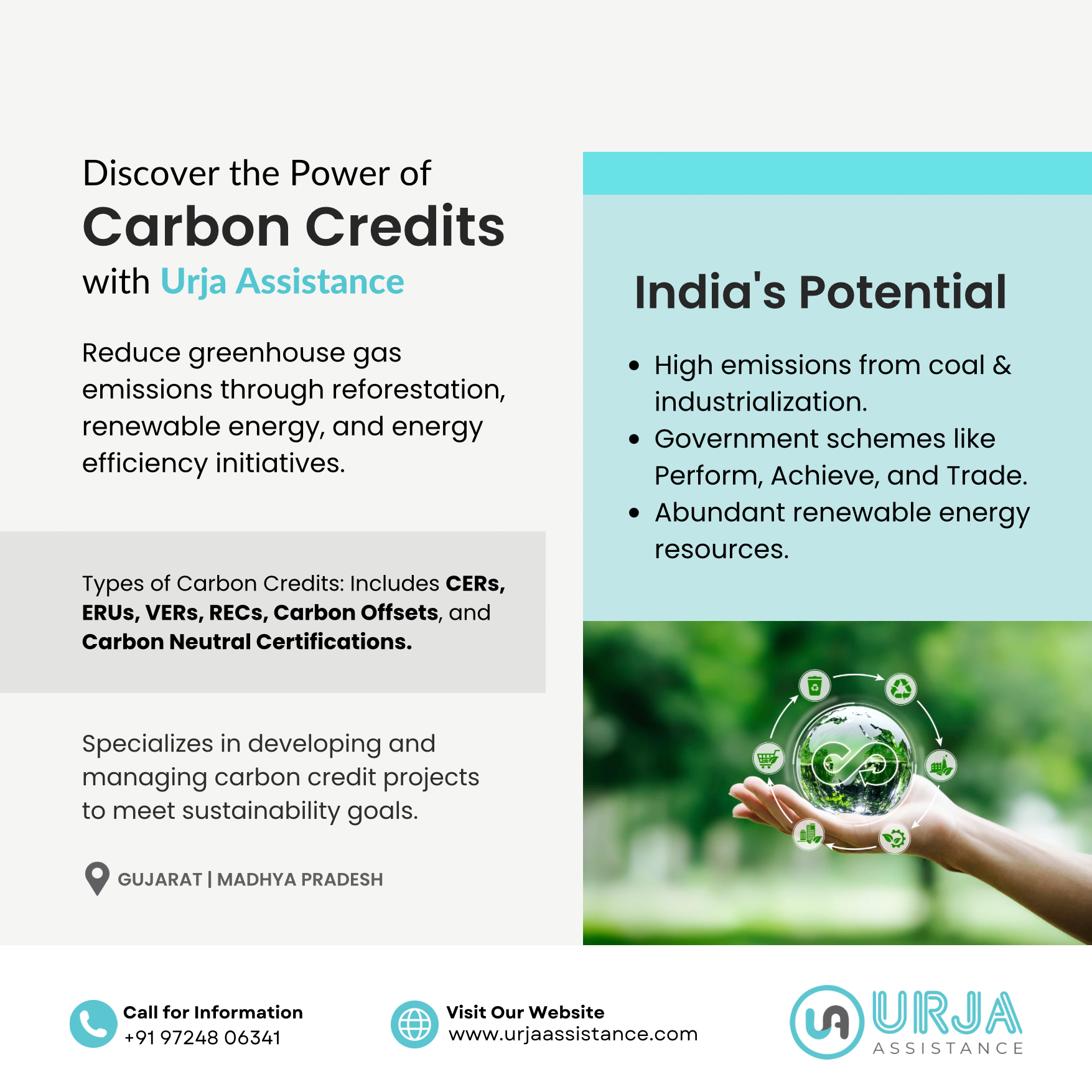Carbon credit projects are initiatives aimed at reducing greenhouse gas emissions to combat climate change. These projects play a crucial role in promoting sustainability and environmental responsibility. They come in various forms, such as reforestation efforts, renewable energy projects, and energy efficiency programs. Each project is designed to offset a certain amount of carbon dioxide equivalent emissions and contribute to a greener future for our planet.
Trading Potential in Carbon Credits India
India has significant trading potential in carbon credits due to its large and diverse economy, growing industrial sector, and increasing focus on sustainability. Here are some key factors contributing to this potential:
- Growing Emissions: India’s large greenhouse gas emissions due to coal reliance and rapid industrialization present an opportunity for emission reduction projects.
- Government Initiatives: The Perform, Achieve, and Trade scheme and the National Clean Development Mechanism Authority encourage industries to reduce emissions and participate in carbon markets.
- Renewable Energy Potential: India’s abundant renewable energy resources make investing in renewable energy projects attractive for investors.
- Voluntary Market Demand: Growing awareness and demand for carbon neutrality among Indian businesses and consumers creates a market for carbon credits.
- International Collaboration: India’s commitment to reducing carbon intensity, as a signatory to the Paris Agreement, can enhance the trading potential of Indian carbon credits.

Types of Carbon Credit
There are several types of carbon credits, each representing a different approach to reducing or offsetting greenhouse gas emissions. Here are some common types:
• Certified Emission Reductions (CERs): Carbon credits issued under the Clean Development Mechanism (CDM) of the Kyoto Protocol.
• Emission Reduction Units (ERUs): Carbon credits issued under the Joint Implementation (JI) mechanism of the Kyoto Protocol.
• Verified Emission Reductions (VERs): Carbon credits generated by projects reducing emissions not part of the CDM or JI mechanisms.
• Renewable Energy Certificates (RECs): Credits generated by renewable energy projects representing environmental benefits.
• Carbon Offsets: Credits generated by projects reducing, avoiding, or removing greenhouse gas emissions.
• Carbon Neutral Certification: Programs offering carbon credits to offset emissions.
These are just a few examples of the types of carbon credits available. Each type has its own characteristics and requirements, but they all play a crucial role in incentivizing emission reductions and promoting sustainable development.

As Urja Assistance Carbon Solutions, we are dedicated to driving environmental sustainability through innovative carbon credit projects. As a leading provider of carbon credit solutions, we specialize in developing and implementing projects that reduce greenhouse gas emissions and contribute to a more sustainable future.
Our team of experts works closely with clients to identify, develop, and manage carbon credit projects that align with their sustainability goals. Whether it’s through renewable energy installations, energy efficiency improvements, or sustainable land use practices, we are committed to delivering high-quality carbon credits that make a real impact.
With a strong track record of success and a deep understanding of carbon markets, Urja Assistance Carbon Solutions is your trusted partner in the transition to a low-carbon economy. Join us in making a difference today.
For knowing the Process for the generation of carbon credit please let us know. Our Executive team will share details with you.
For More Detail Please Check Our Website : www.urjaassistance.com

